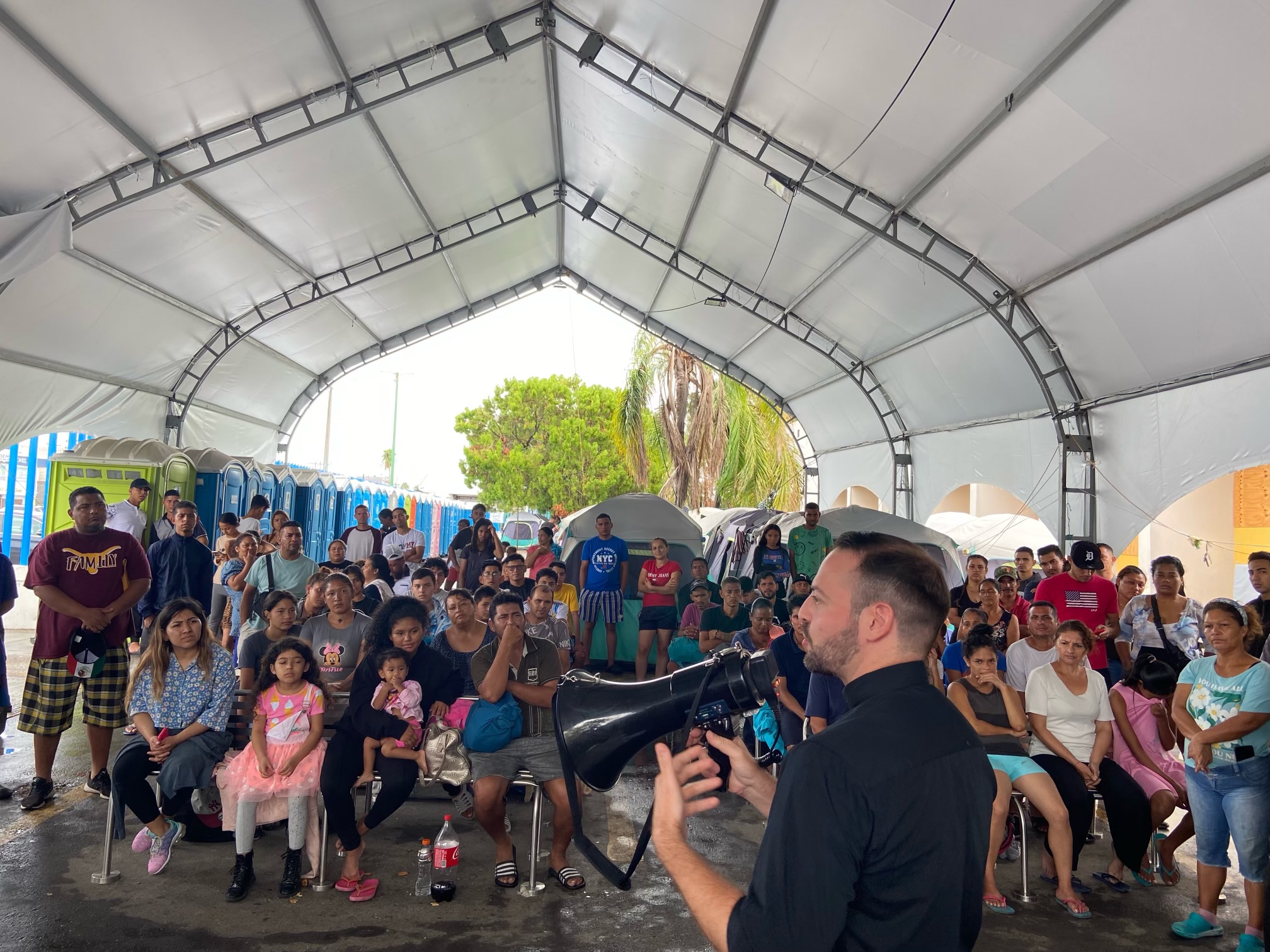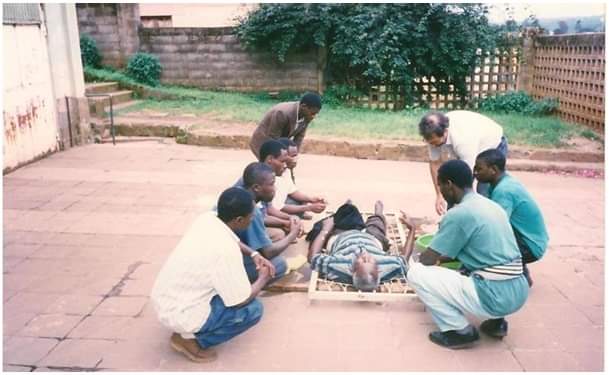“They are my gift to you.”
Disclaimer: The names of the migrants mentioned have been changed for their security.
I am a Jesuit preparing to become a priest. About halfway through our studies for the priesthood, Jesuits like me are given a mission to work in full-time ministry for a couple of years, resuming studies afterwards. Last summer, I was given such a mission; I would teach at one of our high schools in Puerto Rico. Just as I was preparing to be a high school teacher, I was reassigned at the last minute to the city of Brownsville on the US-Mexico border to minister to migrants. Although I was not expecting this assignment at all, it has been a tremendous blessing for me – it has brought me closer to Christ, poor and humble.
I have the privilege of being part of Del Camino Jesuit Border Ministries, a small team of Jesuits engaged in itinerant ministry along the border. Right now, we operate in the Rio Grande Valley, the southmost tip of Texas bordering part the Mexican state of Tamaulipas. Our mission is simple: to go where the migrants are and accompany them. This accompaniment generally involves arriving at a shelter, offering the Mass, delivering some humanitarian supplies, and engaging in pastoral conversations.

Most of our days begin with going into Mexico in order to visit migrant shelters in Reynosa and Matamoros. There we encounter asylum seekers who are waiting for permission to enter the United States. Currently, the only way for a migrant to be eligible to ask for asylum is by downloading a government app onto their phones and asking for an appointment to present themselves at a designated port of entry. In some cases, asylum seekers can wait many months just to be granted that appointment. In their time spent waiting, they continue to be at risk from the many predatory characters along the border: corrupt government officials who extort the migrants, and the criminal cartels who target the migrants and kidnap them for ransom.
It was in one of the migrant shelters in Reynosa where I met Maria, a Venezuelan teenager, for the first time. Another migrant had pointed her out to me, telling me that she and her family had been kidnapped. The family had their appointment to enter the United States, but the family had only raised enough money for Maria to be released – her mother, brother, aunt, and cousin remained in the hands of the cartel. Maria felt herself in a quandary; she had her appointment and she did not want to go to the United States without her family, but she would miss her appointment if she waited for her family. Most of all, she was worried about their safety while captured, knowing from experience that the local cartel has a well-earned reputation for cruelty to migrants.
Father Brian Strassburger, the director of Del Camino, and I sat down with her. Fr. Brian, a Jesuit far more knowledgeable than me about the intricacies of US border policy, reassured Maria that she could wait for the rest of her family to be released from their kidnappers and the US government would still honor their appointment even the appointed date had passed. Maria, however, looked preoccupied and sat in silence – it felt as if there was a wall between us. Sensing that she had other concerns, I told her “You survived your kidnappers. I don’t think it’s possible to survive such a situation without a fire inside you, without an interior strength. That doesn’t come from nowhere; your family has that same fire. Trust in that fire and the strength of your family.” Then she began to cry and the wall between us began to crumble. I sat with her for the better part of an hour, mostly in silence. One by one, the cartel released her family members over the course of a few weeks. Maria and her family also began joining us for the Mass and I began to see Maria smile more.

A few weeks later, I was in the Humanitarian Respite Center, a shelter in McAllen, Texas where migrants who have arrived to the US stay as they wait for passage to their next location. I was talking with an asylum seeker when I felt a tap on my shoulder. Maria was there with her family, beaming. We all hugged and there was such relief at seeing her and her family finally safe in the US. Moments later, we began the Mass.
Mass at the Humanitarian Respite Center is unlike any Mass I had previously been a part of. There are often tears at the Mass. It is a Mass of many different emotions: gratitude, relief, uncertainty, sorrow, hopefulness. There is a real catharsis at that Mass. That is not to say that we are chasing catharsis at these Masses, yet God generously allows these Mass to impact those who attend – and I get a front-row seat to watch the Spirit move in this migrants.
Although we offer these Masses for the migrants and their intentions, I nevertheless find myself being impacted and changed by it. Most especially, I see the moment when we pray the Our Fatherdifferently. As I pray it now, I look out at all the migrants praying it with me. These are people from many different countries, sometimes speaking different languages, with all sorts of backgrounds, dreams, traumas, and gifts – and here we are praying the same prayer that Jesus taught us. I imagine Jesus looking at them with such pride and love, hearing them pray as he taught them. Then I imagine Jesus turning to the Father, saying “They are my gift to you.” In this mission that I did not expect, I get to walk with these migrants - the beloved of Jesus and the Father.
Joseph D. Nolla, SJ









